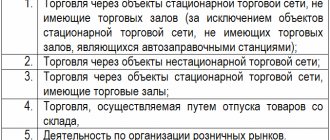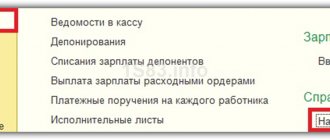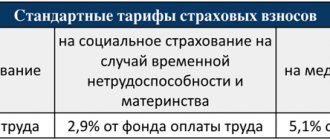Is there a tax on foreign exchange transactions in the Russian Federation?
Direct transactions with currency, cash or non-cash, are not subject to any special tax in the Russian Federation.
Moreover, judging by the trends in the further formation of currency legislation in the country, we cannot expect the appearance of such a tax in the near future. For more information about what to expect, read: “Changes in currency legislation in 2022.”
The tax on foreign exchange transactions refers to the income tax of individuals payable to the budget at the end of the past year. For example, if an individual purchased dollars at the rate of 50 rubles. for a dollar, and then exchanged for rubles at the rate of 70 rubles. per dollar, then this person received income in ruble equivalent. According to the norms of the current legislation, an individual must declare and pay personal income tax to the budget from such income for the year in which he made a profitable operation.
Let's look at the reasons for this.
What is the essence of taxation of income from currency exchange
The grounds for paying tax in case of receiving income from currency exchange are as follows:
- clause 1 art. 228 of the Tax Code of the Russian Federation obliges the payer (individual) to pay tax (personal income tax) on income related to the sale of property;
- clause 2 art. 38 of the Tax Code of the Russian Federation establishes: what is property should be determined according to the norms of the Civil Code of the Russian Federation;
- Art. 141 of the Civil Code of the Russian Federation, in turn, determines: in what should be classified as property expressed in currency values, one must be guided by the norms of legislation on currency regulation;
- and finally, paragraph 1 of Art. 1 of the Law “On Currency Regulation” dated December 10, 2003 No. 173-FZ classifies currency as property.
Thus, having gone through the entire logical chain, we establish: transactions of individuals selling foreign currency with profit should be subject to personal income tax. Consequently, when selling currency, an individual acquires the obligation to report such sale to the Federal Tax Service and pay tax if he receives income from the transaction.
These conclusions were repeatedly confirmed by the Ministry of Finance in its letters. As an example, let us indicate the letter dated February 20, 2015 No. 03-04-06/8370.
Read more about this: “Will a tax be introduced on foreign exchange transactions?”
One of the aspects of “currency” taxation is the accrual of personal income tax on payments in foreign currency in exchange for daily allowance to a posted worker. The corresponding explanations were prepared by ConsultantPlus experts in a special material. Get a free trial.
Mandatory sale of 80% of foreign currency earnings for businesses from 01/01/2022
The first paragraph of Decree No. 79 states the obligation of residents doing business with foreign countries to sell 80% of the currency received in bank accounts from non-residents.
Moreover, the Decree begins to work retroactively and obliges to sell not only the proceeds received after 02/28/2022, but also what was received starting from 01/01/2022. The full text of Decree of the President of the Russian Federation No. 79 is already available in ConsultantPlus. Sign up for trial access and read for free.
What to do if the foreign currency earnings received before the advent of Decree No. 79 have already been spent?
In this regard, clarifications of the Central Bank dated 02/02/2022 appeared (hereinafter referred to as the Central Bank Explanations).
If foreign exchange earnings received during the period from 01/01/2022 to 02/28/2022 are used, there is no need to buy and then sell such currency again. Only 80% of the balance of foreign currency funds listed in accounts as of the date of Decree No. 79 is subject to sale.
Important! The balance of currency for mandatory sale is taken into account in all existing accounts, including deposit and transit accounts.
Example
On January 30, 2022, a Russian resident company received foreign exchange earnings for the supply of goods under a contract with a foreign counterparty in the amount of 100,000 euros. On February 2, 2022, transportation of goods to a foreign buyer was paid under the terms of the contract - 20,000 euros. On February 3, 2022, the Russian company decided to place 50,000 euros on deposit.
You need to sell 80% from 80,000 euros (100,000 – 20,000). Of these, 30,000 euros are on account and 50,000 euros are on deposit.
At what rate should foreign exchange earnings be sold?
In the Central Bank's Explanations, the regulator notes that no special restrictions have been established regarding the exchange rate for the sale of currency.
All residents obliged to sell 80% of foreign currency earnings have the right to choose both the method of sale (through their bank, through another bank, etc.) and the rate at which to sell.
Important! The only condition is that the sale must be carried out within 3 working days from the date of enrollment (appearance of Decree No. 79).
Is it possible to sell foreign currency earnings in parts?
Yes, this is possible. The Central Bank confirms this in its Explanations. The mandatory condition is the same as for determining the method and rate of sale - the three-day period established for the operation must be observed.
Do all types of currencies need to be sold?
For now, you need to sell any foreign currency received from any payer outside the Russian Federation. No exceptions have been made either for types (names) of foreign currency or for the location of the counterparties who listed it.
Are there any benefits for selling currency for residents of special economic zones?
Rules for the mandatory sale of 80% of foreign currency earnings have been introduced for all residents of the Russian Federation without exception.
No benefits or preferences are provided.
Therefore, residents of special economic zones must sell foreign currency earnings according to Decree No. 79 on a general basis.
Practical application of “currency” personal income tax in 2021
Despite its solid theoretical justification, this rule does not work in practice. At least for now.
There are several reasons for this:
- There is no specific procedure for accounting for foreign exchange income when calculating the taxable base for personal income tax that is understandable to “ordinary residents.” At the same time, most citizens are not experts in the Tax Code of the Russian Federation in order to correctly calculate the base and tax according to general standards (even if they know about the need to calculate tax when selling currency).
- The Federal Tax Service does not have tools to monitor the activities of citizens in the purchase and sale of currency. In the vast majority of cases, if a citizen himself does not come to the Federal Tax Service with a declaration that includes income from currency exchanges, then the tax authorities have no way to find out about it.
- From the point of view of the application of the Tax Code of the Russian Federation and the above conclusions, questions also remain. For example, in Art. 217 of the Tax Code of the Russian Federation there is a provision that transactions with property that has been owned by an individual for more than 3 years are not taxed. It is quite difficult to confirm or deny the fact of ownership of foreign currency funds for a certain period of time; a person could collect the exchanged amount for years (for example, to buy a home). How to calculate tax correctly in this case? Or how to force a citizen to inform the tax office about such situations, which will probably offer to pay personal income tax on the entire amount?
Practical currency control in relation to both individuals and organizations is carried out in any case. You can get acquainted with its main features here.
One way or another, in most cases, Russian individuals do not seek to declare and pay “currency” personal income tax, and the Federal Tax Service does not have the ability to identify such defaulters. Payment of tax is possible in situations where a currency exchange transaction is documented and subject to verification (for example, a non-cash exchange of a large amount in an individual’s bank accounts) or when personal income tax on currency-related transactions is withheld by a tax agent (for example, when an individual issues a loan to an enterprise in foreign currency ).
For information on withholding personal income tax in such cases, see the article “Loan in foreign currency: is the positive difference subject to personal income tax?”
The regulatory framework regarding the taxation of foreign exchange transactions may extend to the innovative components of such transactions - as is the case with the exchange of digital currencies. You can learn more about the operation of the law in this area in a special material from ConsultantPlus experts, having received free trial access to it.
Have you paid tax on CURRENCY? We think, we figure it out...
Good evening everyone! The ruble fell significantly in price last year, many made a profit from the sale of the rising currency, but the broker is not a tax agent
I decided to be conscious and pay taxes for 2022 and spent a lot of time figuring it out. I will try to convey everything that I learned)
There is very little information about this; in many sources it is incorrect and contains simple examples that will not help a trader calculate taxes.
There is an obligation to pay tax and submit 3-NDFL (currency is considered property)
Personal income tax must be filed if there was at least one sale of personal property (including foreign currency), even if the transaction was unprofitable or the tax was 0 due to the use of deductions. The fine for failure to file 3-NDFL is 1000 rubles + tax + penalties, etc.
Calculating taxes is a headache
There may be several options here.
Option 1: sales of currency and other property amounted to less than 250 thousand rubles. Here you can simply use the property tax deduction and the tax base will become equal to 0, like the tax itself.
Option 2: if currency ownership occurs for 3 or more years, then there is no obligation to pay taxes and submit 3-NDFL.
Option 3: if all currency transactions were unprofitable, then you will have to file personal income tax, but the tax will be 0.
Option 4: Here's the fun part. We traded all year, made +100500 transactions. Some were profitable, and some were unprofitable.
1. In order to correctly calculate and pay tax, you must first select all SALE transactions.
The amount of these transactions will be the income indicated in the declaration.
2. Next, for each sales transaction, you need to calculate the purchase costs. This is done not anyhow, but using the cost estimation method (FIFO or LIFO). I didn’t find any requirements regarding which method should be used, but I settled on FIFO, there was less confusion.
In simple terms, you need to calculate purchase expenses using FIFO.
Example: There is a transaction for the sale of 2000 dollars from 12/30/2020 at a price of 75 rubles (i.e. sale of 2000 * 75 = 150,000 rubles) but there were several purchases: $1000 02/02/2020 at 65 rubles $1000 06/02/2020 at 73 rubles $1000 02.10.2020 for 79 rub.
According to FIFO, expenses for this transaction will be calculated as follows: 65*1000+73*1000=138,000, since we first sell the dollars that we bought earlier. Under LIFO, the opposite is true.
As a result, we have a “purchase” price of currency for each specific transaction.
If we put the transactions in a table, we get something similar.
In this table, the income from the sale is calculated correctly and can be entered into the declaration, but the deduction needs to be adjusted, since some transactions were unprofitable.
This is due to the fact that unprofitable transactions do not reduce the tax base.
Those. if we lost 100 thousand rubles on unprofitable transactions, and earned 50 thousand rubles on profitable ones, then we need to pay tax on profitable transactions, despite the fact that the total result is negative.
For unprofitable transactions we do: DEDUCTION FOR PURCHASE = INCOME FROM SALE and we get this:
This will be the correct data to include in the declaration.
Income: RUR 1,354,232.60 Deduction for purchase: RUR 1,249,755.90 13% of the difference: RUR 13,581.97
If you have hundreds or thousands of transactions, then calculating this tax manually will be very difficult.
By the way, if over the years there have been transactions with other property (except real estate), they go into the same piggy bank.
I tried to present the information as simply as possible) If you disagree with something or something is unclear, write in the comments.
I am not a pro in the field of accounting and cannot guarantee that this is a 100% correct option, but after spending 10 hours digging up and systematizing information on the topic, I decided that I would count this way. In many articles that I have read, stupid mistakes are made that are contrary to the law.
Results
As such, there is no tax on currency exchange transactions in the Russian Federation yet. The legal norms imply the obligation of resident individuals to declare and pay personal income tax on transactions with currency, if income was received as a result of such transactions. But in practice, this norm has not yet been practically implemented, since there is no working procedure for calculating, paying and confirming personal income tax amounts from transactions with currency, and there is also no control mechanism for the implementation of this norm by the Federal Tax Service.
NOTE!
For the purposes of this article, a resident of the Russian Federation should be understood as a tax resident of the Russian Federation, since we are talking about taxation according to the norms of the Tax Code of the Russian Federation. You can find more complete information on the topic in ConsultantPlus. Free trial access to the system for 2 days.





